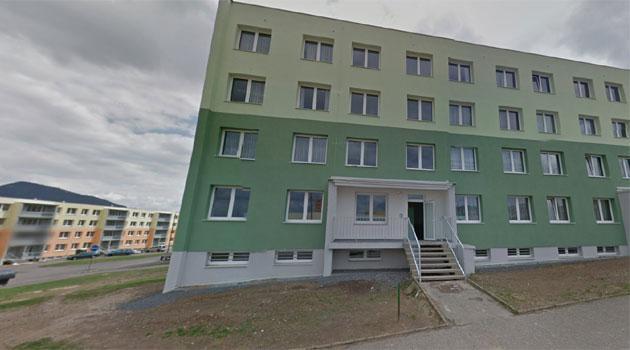Dušan Červeňák: "I don't believe in projects much - you can't work with people from behind a desk"

“This work is not about education, but about aid to those who need it,” says DUŠAN ČERVEŇÁK, vice-chair of the Ostrava-based group Romipen. After 12 years of practical experience in Ostrava’s excluded localities, where he has worked as a Romani adviser and field social worker, he decided this spring to establish his own nonprofit organization.
Romipen is focused primarily on housing, and in collaboration with the Ostrava-Poruba municipal department is administering seven “training” apartment units with the aim of aiding families in complicated social situations to access rental housing, providing them with comprehensive social work as they do so. “We would like at least one member of each couple to be employed, but that’s not a condition for accessing one of the units, just an aim for our further approach if the clients don’t yet have work,” Červeňák said.
He is of the opinion that everybody has the right to get a chance, including those who at one point have made mistakes and are doing their best to correct them. The “training” apartment units house young families with children, single mothers, or men who are returning to “normal” life after serving prison sentences.
“They pay their rent to our bank account and we then forward it to the municipality, we don’t make any money or charge any fees. We have personally negotiated everything with the municipality, we didn’t submit a project anywhere for this,” Červeňák said.
There is enormous interest among the Romani community in housing in Ostrava. Červeňák does not reject those who call for advice but don’t meet the municipality’s criteria for a “training” unit.
Thanks to his many years of knowledge of the local environment, Červeňák manages to direct prospective renters to landlords who do not have a problem leasing to Romani tenants and who will not charge exorbitant rents. “The real estate market, unfortunately, actually functions such that landlords frequently do not want Romani renters. These people need housing and they are not managing to find any because they are Romani. However, that’s the entirety of their problem – they don’t need social services, they’re not in debt, they’re employed. Many nonprofits, however, are making money out of this – they show the number of clients they have and call what they are offering them ‘social housing’, but these people don’t need social housing – they just need housing,” Červeňák explains.
Aiding rationally
Housing in Ostrava has long been an awkward topic – charities, the city, nonprofits and the Salvation Army are all involved in it. Despite their efforts, the trafficking in poverty and spatial segregation according to ethnicity just continues to bloom there.
Besides Ostrava’s chronically infamous residential hotels, the biggest provider of rental housing in the region, the RPG Byty company, reportedly keeps adding fuel to the fire as well. Since 2014 the Czech Government Agency for Social Inclusion has also been involved in the game of addressing social integration in Ostrava.
Červeňák is critical of the Agency’s plans for collaboration with the city and nonprofits. “The municipalities are supposed to provide roughly 120 apartments for social housing. There are eight field social workers for comprehensive social work in the plan,” he describes.
The Romipen vice-chair believes there are several immediate obstacles to the Agency’s plan. He considers the number of field social workers to be insufficient.
“I was a field worker for 12 years, but comprehensive, high-quality work for 15 families simultaneously is something I could never have handled, it’s impossible. Moreover, these staffers must be professionals, and for work with Romani people, ideally they must be Romani too,” he emphasizes.
Červeňák says the question is who will ultimately be chosen for the social housing units. “If the intention is to draw people away from the residential hotels, then there are many families now in those facilities who have been stagnating in them for years, and some of them wouldn’t be able to handle paying their own rent anyway – ultimately they would end up returning to those facilities. Moreover, the millions being invested into those apartments is for their reconstruction, so the municipalities are basically getting a ‘free’ appraisal of them through this process – and once they are reconstructed, who is going to want ‘Gypsies from the residential hotels’ in them?” he asks.
The Romipen vice-chair believes it is necessary to work with the “stagnating” families in the residential hotels right now instead of moving them into social housing and then sending social workers to aid them, which in his opinion is a clear path to failure. He believes this will only ultimately serve those who already tend to make the argument that “See, we gave [the Roma] a chance, but it’s just not possible to work with them.”
That situation would lead to “the most capable of the capable” being chosen for the social housing apartment units while the people who need aid the most would once again remain at the bottom of the social barrel. “We will follow this collaboration between the Agency and the city – how expediently the money is spent, how many Romani families are meaningfully aided, and in what way,” Červeňák says.
In the future he plans to work with children and families directly in the residential hotels: “It’s sometimes difficult with adults. The children, however, deserve a better life, after all.”
First published in the November 2016 edition of the monthly Romano voďi. To order a copy (in Czech only) use the simple online form at www.romanovodi.cz.
